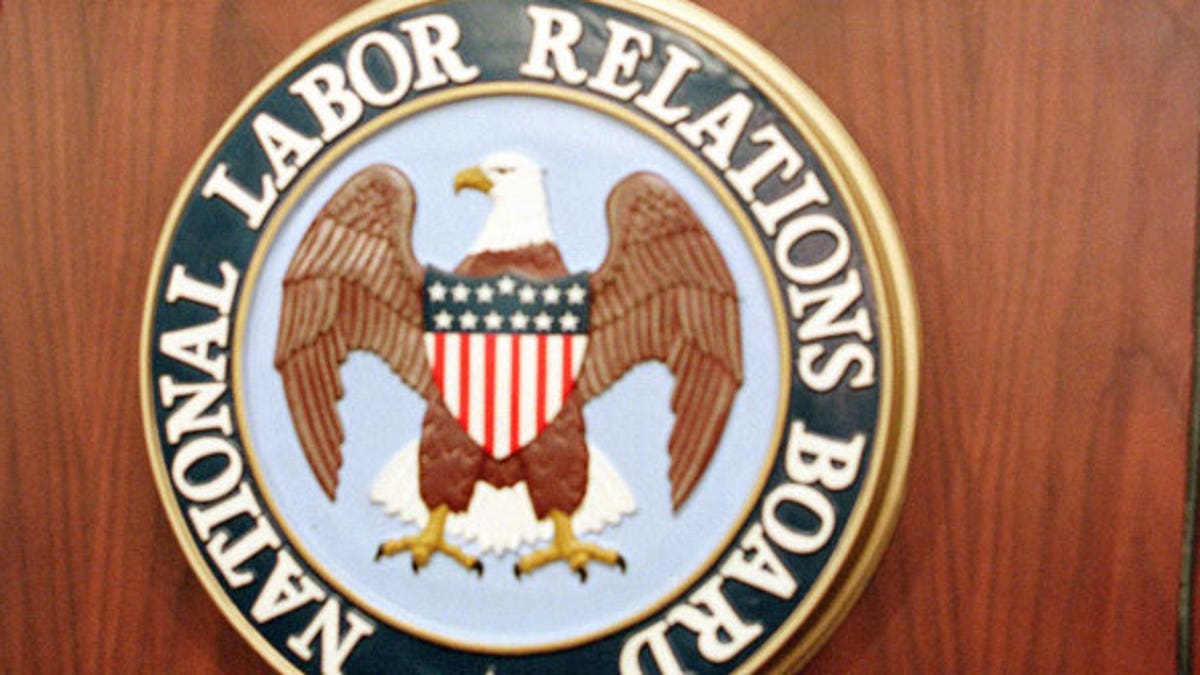
NLRB logo. AP. (AP1995)
Two Senate Republican leaders introduced a bill Wednesday in the hopes of reforming the National Labor Relations Board.
“U.S. Senate Majority Leader Mitch McConnell (R-Ky.) and Sen. Lamar Alexander (R-Tenn.), chairman of the Senate labor committee, today introduced the NLRB Reform Act to turn the National Labor Relations Board (NLRB) from an advocate to an umpire and keep the general counsel from operating as an activist for one side or the other,” a press release detailed.
The bill is designed to rein in the general counsel, end partisan advocacy by splitting board members between parties and encourage timely decision-making by including budgetary disincentives for gridlock.
“The NLRB’s politically motivated decisions and controversial regulations threaten the jobs of hardworking Americans who just want to provide for their families,” McConnell said in a statement. “So it’s time to restore balance and bipartisanship. The NLRB Reform Act would help turn the board’s focus from ideological crusades that catch workers in the crossfire to the kind of common-sense, bipartisan solutions workers deserve.”
Experts also say the potential law would steady the legislative boat for companies looking to comply with regulations over the long-term.
“This legislation will turn the National Labor Relations Board from a partisan advocate to the neutral umpire it ought to be, restoring stability to our nation’s workplaces,” Alexander also noted in a statement. “It would also rein in the freewheeling general counsel by allowing businesses and unions to challenge complaints in federal court, and it would encourage timely decisions by saying either party to a case may appeal to the court of appeals if the board fails to act within a year.”
Lawmakers and experts have been concerned for quite some time over the biased nature of the NLRB. In a recent report, the Competitive Enterprise Institute argued that the board has become a revolving door for special interest, depending on what political party is in charge.
“The Board’s case precedent flip-flops in favor of organized labor or management, depending on whether Democrats or Republicans hold the Executive Office,” the report noted. “The NLRB’s biased and ever-changing regulatory landscape makes compliance with the National Labor Relations Act (NLRA) arduous for employees, employers, and unions.”




